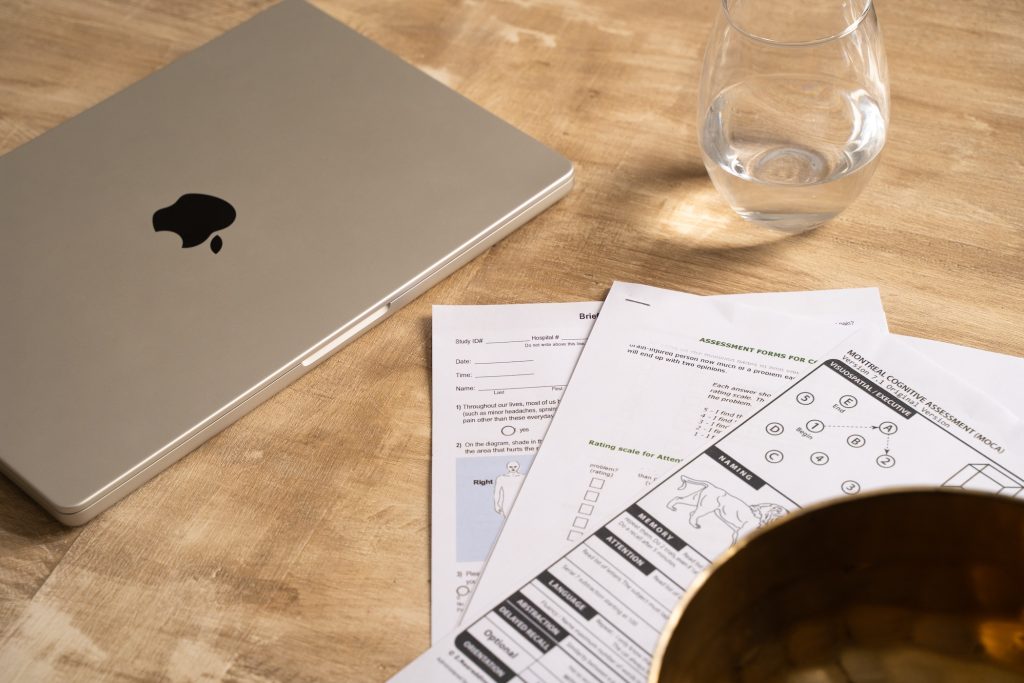A medico-legal assessment is an important evaluation that occurs when medical expertise is needed for legal matters. This assessment typically involves a thorough review of your medical history and current condition by a qualified professional such as an occupational therapist. During this assessment, the occupational therapist will observe your functional abilities, interview you about how your condition affects daily activities, and may conduct standardised tests to document your capabilities objectively.
These assessments commonly take place in a home-based setting and usually last two to three hours depending on the complexity of your case. The occupational therapist will remain neutral throughout the process, as their role is to provide an impartial expert opinion rather than to act as your treating therapist. You may be asked to perform certain tasks or movements to demonstrate your functional limitations.
After your assessment, the occupational therapist will prepare a comprehensive report documenting their findings. This medical report will be used by legal representatives, insurance companies, or courts to make informed decisions about your case. It is important to be honest and forthcoming during your assessment to ensure the medical legal report is the most accurate representation of your condition.
Purpose of Medico Legal Assessment
Medico legal assessments serve as a critical bridge between the medical and legal worlds. They provide essential information that helps determine appropriate outcomes in cases involving injuries or disabilities.
Legal Requirement
Medico legal assessments are requested by courts, insurance companies or legal representatives to establish facts in compensation claims. When you attend a medical legal assessment, you’re fulfilling a necessary step in the legal process. These evaluations are typically requested when there’s a dispute about your injury or condition and its impact on your life.
In Australia, different jurisdictions have specific requirements regarding who can conduct these assessments. Occupational therapists with specialised training are frequently chosen for their expertise in evaluating functional capacity in order to determine the functional impact of your injury. The assessment follows strict protocols to ensure findings will stand up to scrutiny in court or tribunal hearings, and throughout legal proceedings.
Your participation is crucial, as failing to attend may negatively impact your claim or case. Legal representatives use these reports to understand the medical aspects of your situation and how they relate to legal considerations.
Objective Medical Opinion
The core purpose of a medico legal assessment is to provide an unbiased, professional opinion about your condition. .
This objectivity is vital in legal proceedings where facts must be established without favouritism. The therapist evaluates your capabilities through standardised testing and observation, forming conclusions based solely on medical evidence and professional opinion, rather than assumptions or sympathy.
Your assessment will document your current functioning, limitations and needs related to the injury or condition. The occupational therapist considers how your daily activities, work responsibilities and social participation have been impacted. They may also comment on the relationship between your injury and your current limitations.
This impartial evaluation helps all parties understand your situation without bias or exaggeration.
Determining Compensation
Medico legal assessments play a crucial role in calculating appropriate compensation for your injuries. They provide medical evidence about how your injury affects your life and what support you might need.
The occupational therapist will assess various aspects that influence compensation decisions. This includes a medical examination to assess your ability to work, need for assistance with daily tasks, and requirements for home modifications or assistive devices. They may calculate costs of past and future care needs or estimate earnings lost due to reduced work capacity.
These assessments help quantify non-physical aspects of your injury as well, such as how limitations impact your quality of life. Insurance companies and courts rely heavily on these reports when determining fair settlement amounts.
The detailed nature of the assessment and claims process ensures that all legitimate needs are identified and can be properly compensated. This helps you receive appropriate support while preventing both inadequate and excessive compensation claims.
Preparation for the Assessment
Getting ready for your medico-legal assessment helps ensure the process goes smoothly and produces accurate results. Proper preparation significantly impacts the efficiency of the medico-legal assessment and its outcomes.
Documentation and Prior Medical Records
If not already provided by your solicitor, you’ll need to bring all relevant medical records to your assessment. These include GP reports, specialist letters, hospital discharge summaries and any previous rehabilitation reports. Organise these documents chronologically to help the occupational therapist understand your medical history more efficiently.
It’s also helpful to bring a list of current medications and any assistive devices you use regularly.
Consider preparing a brief timeline of your condition, noting key events and how your symptoms have changed over time. This information gives the occupational therapist valuable context about your situation.
Questions to Expect
During your medico-legal assessment, the occupational therapist will ask detailed questions about your daily activities and how your condition affects them; considering the physical, cognitive and psychological impacts. Be prepared to discuss your ability to perform self-care tasks, household chores and work duties.
You might be asked to rate your pain or discomfort during different activities. The therapist may inquire about:
- Your typical daily routine
- Activities you can no longer perform
- How you’ve modified tasks to accommodate your condition
- Support you receive from family or carers
Answer honestly about both good and bad days. Exaggerating or minimising your symptoms can lead to inaccurate assessment outcomes and potentially affect your legal case.
Legal Representation
Consulting with your lawyer before the assessment is highly recommended. They could clarify what the assessment aims to establish and how it fits into your broader legal case.
Your legal representative might advise on specific aspects of your condition to highlight. However, remember that the occupational therapist is an independent expert seeking objective information. Be truthful in all your responses.
You should discuss with your lawyer whether they need to attend the assessment with you. In most cases, this isn’t necessary, but it might be helpful in complex situations.
Ask your lawyer to explain how the occupational therapist’s report will be used in your case. Understanding this context will help you provide relevant information during your assessment.
During the Assessment
The medico-legal assessment process follows a structured approach designed to gather comprehensive information about your condition and functional capabilities. Medical and allied health practitioners conduct these evaluations using standardised methods to ensure accurate and objective results.
Physical Evaluation
During the physical examination, an occupational therapist will observe your movements and physical capabilities. They may measure your range of motion using specialised tools like goniometers to assess joint mobility. The therapist may ask you to perform specific tasks such as lifting objects, reaching, or standing for periods.
Your therapist will document any visible signs of discomfort or limitations. This might include noting facial expressions, body positioning, or compensatory movements you make to avoid pain.
The evaluation often includes measurements of strength, endurance, and coordination. These are compared to normative data for your age and condition to determine functional impact. The therapist maintains a professional, neutral stance throughout, focusing on objective observations rather than subjective interpretations.
Psychological Aspects
The assessment considers how your injury or condition affects your mental wellbeing. An occupational therapist will also assess your mood, cognitive function, and coping strategies during the evaluation.
You may be asked about how your condition impacts your daily life, including sleep patterns, stress levels, and emotional responses. These questions help establish the psychological burden of your physical limitations.
Some assessments include standardised psychological questionnaires to measure anxiety, depression, or stress. Your responses provide valuable insights into how your condition affects your overall quality of life.
The therapist notes your engagement level, concentration, and memory during tasks. These observations help determine if cognitive functioning has been affected by your condition or medication side effects.
Functional Capacity Tests
Functional capacity tests measure your ability to perform everyday tasks relevant to work and daily living. You might be asked to demonstrate activities like sitting, standing, walking, climbing stairs, or manipulating objects.
These tests typically simulate job-related tasks if your assessment relates to a workplace injury. For example, you might lift weighted boxes, type on a keyboard, or maintain specific postures for set periods.
The occupational therapist records your performance using objective measurements including time taken, repetitions completed, and quality of movement also will also monitor for signs of fatigue during these activities.
Results from these tests help determine your current abilities and limitations compared to job requirements or daily living needs.
Assessor’s Expertise
Occupational therapists conducting medico-legal assessments have specialised training in evaluating functional capacity and disability. They understand both medical conditions and the functional requirements of workplace or domestic activities, allowing them to make informed judgements.
These professionals stay current with the latest assessment techniques and medical knowledge through ongoing education.
The assessor maintains strict professional boundaries during your evaluation. They approach each case objectively, following standardised protocols to ensure consistency and fairness.
Your occupational therapist documents all findings in detail, creating a comprehensive medical report that meets legal and medical standards. Their expertise allows them to translate complex medical information into practical recommendations about your functional abilities and limitations.
After the Assessment
Once your medico legal assessment is complete, several important processes begin. The healthcare professional will compile their findings and observations into a comprehensive document, and this report will play a crucial role in your legal matters.
Receiving the Report
After your assessment, the occupational therapist will prepare a detailed report based on their evaluation. This report typically takes up to six weeks to complete, depending on the complexity of your case. The document will include your medical history, current functional abilities, and how your injury or condition impacts your daily life.
You might not receive the report directly. Instead, it usually goes to your lawyer or the party who requested the assessment. Your lawyer will review the document and explain its contents to you in straightforward terms. If you have questions about the findings, you can discuss these with your legal representative who may seek clarification from the occupational therapist if needed.
The report will remain confidential and will only be shared with relevant parties with your permission.
Impact on Legal Proceedings
The medico legal report serves as expert evidence in your case. It provides an independent, professional opinion about your condition and functional limitations. Courts and insurance companies value these reports because they offer an unbiased assessment of your situation.
The medico legal report may influence several aspects of your legal matter. It could help determine compensation amounts for lost income, treatment costs, and pain and suffering; as well as costs for care and equipment required as a result of your injury. For insurance claims, the report might impact your eligibility for benefits or support services.
In some cases, the other party might request their own assessment. This is normal in legal proceedings, and the court will consider all expert opinions. Your lawyer will use the report to build your case and may call the occupational therapist to testify as an expert witness if your matter goes to court.
Need More Information About Medico Legal Assessments? Talk to Independent OT Medico Legal Today
At Independent OT Medico Legal, we understand the critical role that comprehensive and objective assessments play in legal proceedings. Our experienced occupational therapists conduct thorough evaluations to accurately determine the functional impact of physical, cognitive, and psychological injuries. We pride ourselves on delivering timely, detailed, and impartial reports that assist in informed decision-making for compensation claims, NDIA appeals, and other legal matters.
Contact us today to schedule your assessment and benefit from our expertise and commitment to excellence.




